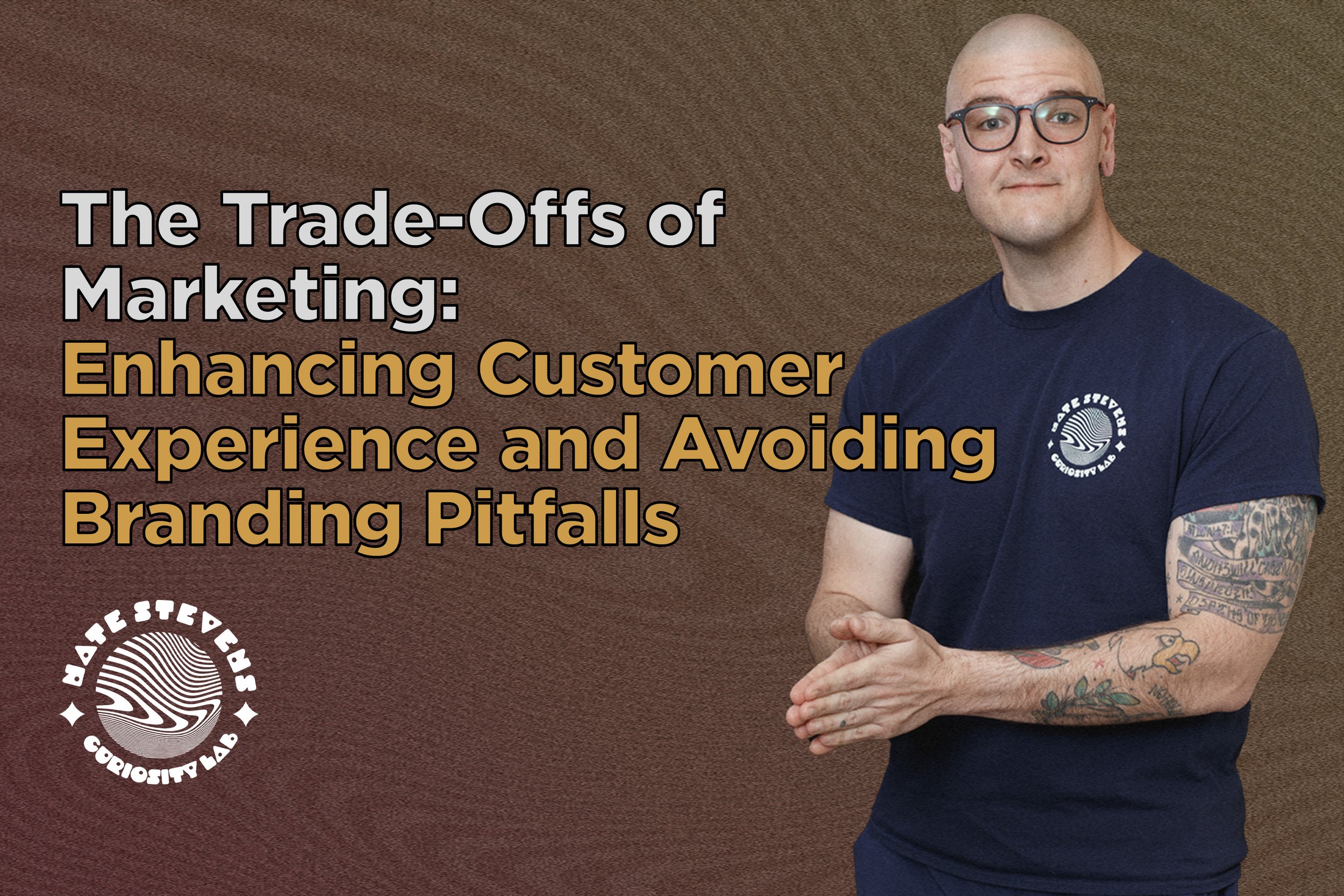The Trade-Offs of Marketing: Enhancing Customer Experience and Avoiding Branding Pitfalls
Marketing, at its core, involves trade-offs, but these trade-offs might not be what you think. Often, the primary trade-off is customer experience. An effective marketing strategy isn't just about getting your message out; it's about creating an incredible client journey that encourages repeat business. Balancing your messaging, delivery, communication, pricing, and overall experience is key to achieving this.
The Importance of Customer Experience
In today’s competitive landscape, customer experience can make or break your business. Here’s why:
Retention and Loyalty: A positive customer experience fosters loyalty. When customers feel valued and understood, they are more likely to return and recommend your services to others.
Differentiation: In markets saturated with similar products and services, an outstanding customer experience can set you apart. This differentiation isn't just about the product but how the customer feels throughout their journey with your brand.
Feedback and Improvement: A focus on customer experience encourages feedback, which is crucial for continuous improvement. Understanding pain points allows for better service and product offerings.
Balancing Act: Messaging, Delivery, and Communication
To create a remarkable customer experience, you need to balance several elements:
Messaging: Clear, consistent, and authentic messaging helps build trust and sets the right expectations.
Delivery: Timely and reliable delivery of products or services enhances satisfaction.
Communication: Open and transparent communication ensures that customers feel heard and valued.
The Pitfall of Over-Focusing on Branding
While branding is crucial, it’s easy to over-focus on the wrong aspects. Many entrepreneurs, including myself in the past, make the mistake of thinking who they are is interesting enough because of our own experience (education, work experience, on-the-job experience, life experience, etc.) without contextualizing it so that the people we serve understand how our past makes us a great fit to better serve them.
Many entrepreneurs, businesses, and marketing departments & agencies get this backwards, which turns 'brand' into an ego-centric mechanism rather than clear communication about all of the extra assets we bring to the table. Our experience is valuable, which is why we want to talk about it. But we have to be careful to communicate the benefits to our clientele.
Historical Perspective on Consumer Behavior
Historically, consumer behavior has evolved significantly. In the early 20th century, companies like Coca-Cola and Ford focused on product-centric branding, emphasizing the uniqueness and superiority of their products. As markets became more competitive, the focus shifted towards understanding consumer needs and preferences. The rise of psychological and emotional appeals in advertising, as seen in campaigns by brands like Apple and Nike, highlighted the importance of connecting with consumers on a deeper level.
Ethical Implications of Marketing
With the power of marketing comes the responsibility to use it ethically. Authenticity is crucial in avoiding manipulation. Here’s how to maintain ethical standards:
Transparency: Be honest about what your product or service can deliver. Avoid making exaggerated claims that can mislead consumers.
Respect for Privacy: Ensure that customer data is collected and used ethically, respecting privacy and consent.
Genuine Engagement: Build relationships based on trust and mutual respect. Engage with your audience genuinely rather than exploiting their emotions for sales.
Conclusion
Marketing always involves trade-offs, but by prioritizing customer experience and avoiding superficial branding, you can create a compelling, trustworthy brand that attracts and retains loyal customers. Focus on delivering exceptional value through every interaction, and your marketing efforts will naturally yield better results. Remember, it’s not just about telling your story; it’s about showing how your story benefits those you serve.

